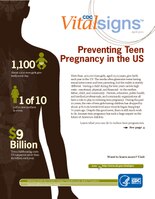
Photo from wikipedia
ABSTRACT Repeat pregnancy may be more challenging to teenage mothers and their children because of increased socio-economic impact, as well as the influence of generally short pregnancy interval. Guided by… Click to show full abstract
ABSTRACT Repeat pregnancy may be more challenging to teenage mothers and their children because of increased socio-economic impact, as well as the influence of generally short pregnancy interval. Guided by Bronfenbrenner’s ecological systems theory, this study explored challenges faced by teenage mothers with repeat pregnancy and support services available to them. Utilizing a qualitative research design, convenience and snowball sampling methods were used to recruit 41 participants, which consisted of 33 teenage mothers and eight health workers from Mamprobi Polyclinic, Accra, Ghana. Individual in-depth interviews and focus group discussions were utilized to gather data that were analyzed thematically. Findings showed that teenage mothers faced educational, financial, and health challenges. They also experienced psychological issues, particularly stigma. Additionally, teenage mothers did not obtain much support from their spouses and had to fend for themselves or relied on their families, neighbors, and health workers. Furthermore, teenage mothers encountered some barriers (family members rationalizing their problems, being accused of infidelity, and negative attitudes of some health professionals) when they accessed support services. Moreover, many of the teenage mothers were ignorant of available formal support services. The findings suggest the need to promote education on repeat pregnancy, family planning, and available support services.
Journal Title: Journal of Human Behavior in the Social Environment
Year Published: 2020
Link to full text (if available)
Share on Social Media: Sign Up to like & get
recommendations!